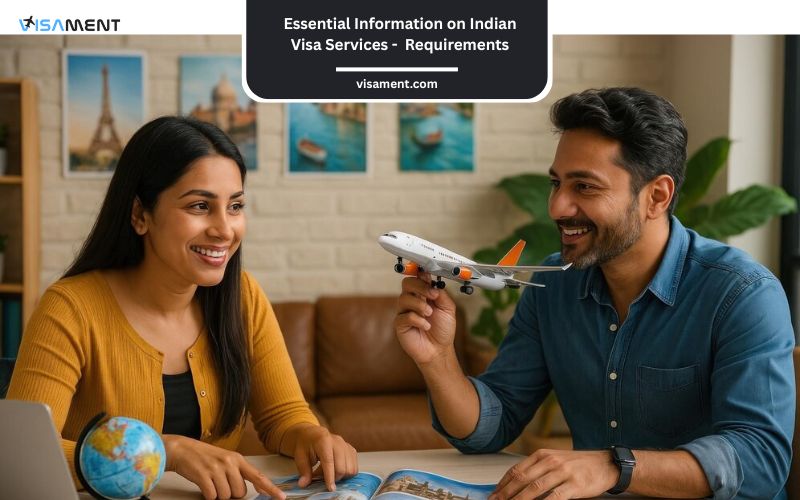
Essential Information on Indian Visa Services - Requirements
India is a vibrant destination rich in history, culture, and economic opportunity. Whether you’re planning a vacation to explore its heritage sites, traveling for business, or visiting family and friends, entering India requires an appropriate visa. Understanding the requirements beforehand can make your travel smooth and hassle-free. This post outlines the essential information you need to know about the Indian visa process, including the types of visas, documentation, and application procedures.
Types of Indian Visas
Before diving into the requirements, it is essential to understand the various categories of visas offered by the Indian government. Each category is tailored to specific purposes of visit:
- Tourist Visa: For leisure travel, sightseeing, and casual visits with friends or relatives.
- Business Visa: For individuals visiting India for business meetings, trade, or attending conferences.
- Employment Visa: For foreign nationals who are hired by Indian companies.
- Student Visa: For those enrolling in recognized Indian educational institutions.
- Medical Visa: For seeking medical treatment in India.
- e-Visa: A convenient online option available for tourists, business travelers, and those seeking short-term medical care.
- Transit Visa: For those passing through India en route to another country.
Each of these visas has different validity periods, fees, and allowed activities. Knowing which visa suits your travel intent is the first step in the process.
General Requirements for an Indian Visa
Although the exact requirements vary depending on the visa type, certain documents and procedures are commonly required across most categories:
- Passport:
- Must be valid for at least six months from the date of arrival in India.
- Should have at least two blank pages for visa stamping.
- Photograph:
- A recent, passport-size photo with a white background is required.
- Digital copies must meet specific size and format criteria if applying online.
- Visa Application Form:
- Can be filled out online through the official Indian Visa website.
- All details must match those on your passport.
- Proof of Purpose:
- Tourist visa: Hotel bookings, travel itinerary.
- Business visa: Invitation letter from Indian company, business correspondence.
- Employment visa: Employment contract or letter of appointment.
- Student visa: Admission letter from an educational institution.
- Medical visa: Medical diagnosis and recommendation from a recognized healthcare provider.
- Financial Proof:
- Bank statements or sponsorship letters showing that you can support yourself during your stay.
- Flight Itinerary:
- While not always mandatory, some embassies request a confirmed return or onward ticket.
- While not always mandatory, some embassies request a confirmed return or onward ticket.
Specific Considerations for e-Visa Applicants
India offers e-Visas to citizens of over 160 countries, making the process faster and more convenient for short-term visits. The e-Visa must be applied for at least four days in advance of travel, and it’s issued for a maximum of 60 days with double-entry (for tourism and business) or triple-entry (for medical).
Documents Required for e-Visa:
- Scanned copy of the passport’s information page.
- Recent digital passport-size photograph.
- Supporting documents based on the visa type (invitation letter, hospital letter, etc.).
Note: The e-Visa is non-extendable and non-convertible. It can only be used for entry at designated airports and seaports in India.
Visa Processing Time
The time required to process a visa can range from 2 days to several weeks depending on:
- Type of visa
- Applicant’s nationality
- Whether additional documentation or security clearance is needed
It’s advised to apply well in advance of your travel date to accommodate any delays.
Fees and Validity
Visa fees vary significantly depending on the type and duration of the visa, as well as the applicant’s nationality. These are non-refundable, even if the visa is denied.
Here’s a general idea of the validity:
- Tourist visas: 6 months to 10 years (with limitations on consecutive days in India)
- Business visas: Up to 5 years
- Student visas: Duration of the academic program
- e-Visas: Valid for 60 days from the date of arrival
Always check with your local Indian mission or consulate for the latest fee structure and policies.
Additional Tips for a Successful Visa Application
- Be Honest: Any misinformation or inconsistencies can lead to visa rejection.
- Prepare Early: Start the application process at least a month before your intended travel date.
- Use Official Channels: Apply through the official Indian government visa site or trusted visa facilitation centers.
- Keep Copies: Always have a copy of your visa approval, flight itinerary, and other essential documents.
Final Thoughts
Understanding the requirements for an Indian visa is crucial to ensure a smooth entry into the country. Whether you’re applying for a regular visa at the embassy or using the e-Visa facility, being informed and well-prepared is key. Indian Visa Services have evolved significantly, offering more convenience and clarity for travelers. By following the correct procedure and providing all required documents, you can avoid delays and focus on enjoying your time in one of the most diverse and fascinating countries in the world.






